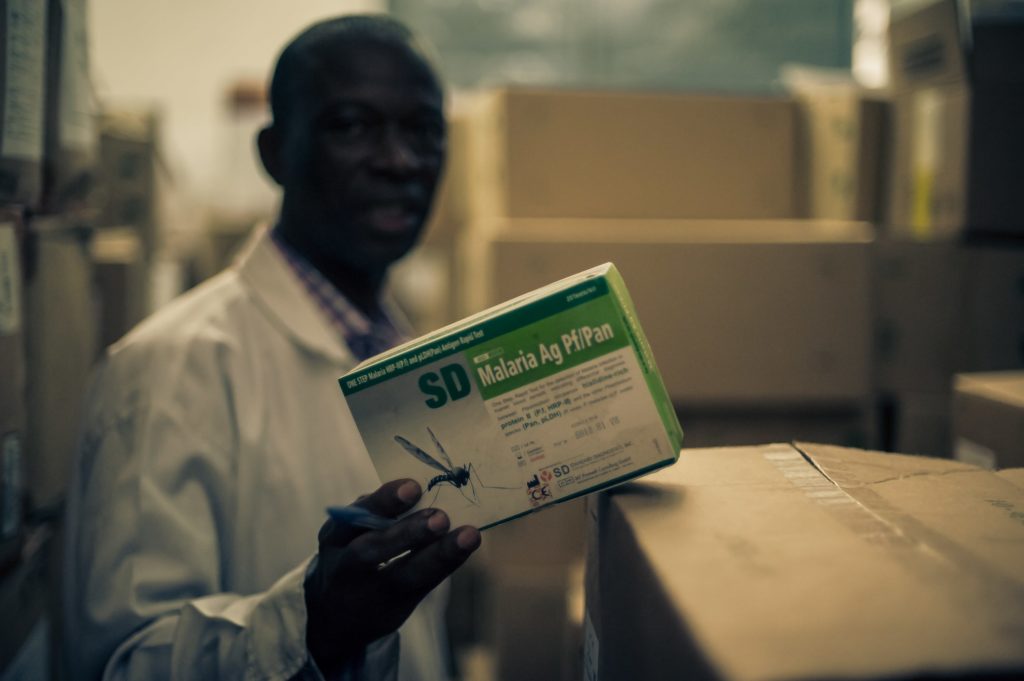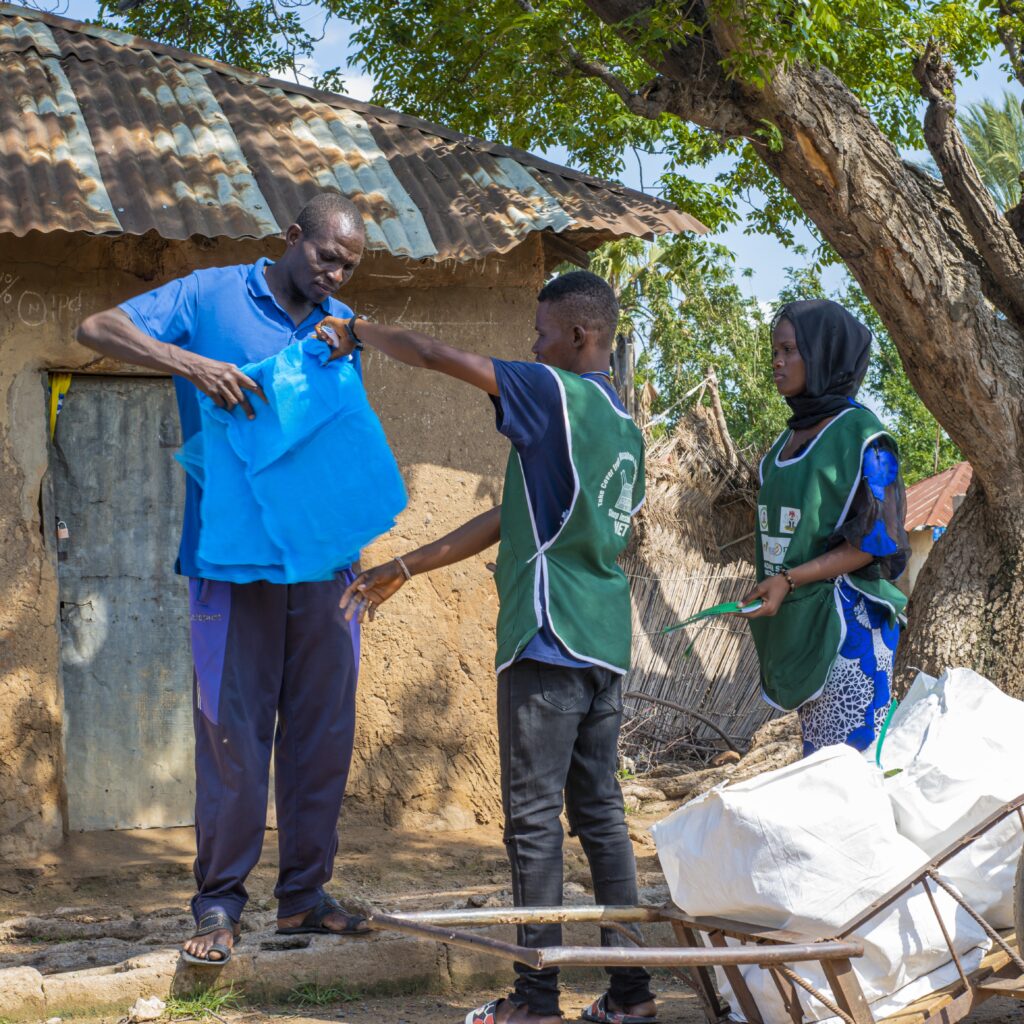Global Fund Malaria Grant
Global Fund Malaria Grant


Fighting Malaria on a Warming Planet
According to the World Health Organization, an increasing number of people are falling ill with malaria—and climate change may be the reason. An MSH-led campaign implemented through the Global Fund Malaria Program is using data to distribute insecticide-treated bed nets that address the specific climate and malaria trends particular to the area. In deploying a door-to-door initiative across Nigeria’s Delta and Adamawa States in June 2022 and July 2023, the campaign has protected more than 13 million people from malaria transmission.
Overview
As a subrecipient to Catholic Relief Services, MSH continues to implement malaria services in Nigeria under the Global Fund Malaria Grant (2024–2026). With a focus on strengthening malaria case management, health information systems, and supply chain management, we aim to reduce the malaria burden to pre-elimination levels and bring malaria-related mortality to zero.
We currently work with Nigeria’s National Malaria Elimination Program (NMEP) in 11 states, where we support integrated community case management of malaria. We implemented a mass campaign to distribute insecticide-treated mosquito nets, and we help facilitate the continuous distribution of this prevention tool via antenatal care and immunization clinics. In addition, we assist with the planning, training, and implementation of seasonal malaria chemoprevention campaigns in Katsina and Taraba States.
At the health-facility level, we support capacity building and mentoring activities for health workers to ensure they have the training and resources they need to provide prompt diagnosis and effective treatment of malaria in accordance with national guidelines. Working alongside the Federal Ministry of Health, MSH supports the NMEP through the placement of monitoring and evaluation (M&E) and procurement, supply, and management advisors to strengthen national planning and oversight capacities. Through these initiatives, we support more than 7,050 health care facilities across 282 local government areas in Nigeria.
Achievements include:
- Supported sustainable vector control strategies: More than 106,000 long-lasting insecticidal nets were distributed to targeted risk groups through continuous distribution and over 13 million people were reached through the door-to-door bed net and malaria awareness campaign.
- Improved diagnosis and treatment: 87% of districts achieved national targets for the number of suspected malaria patients who receive a parasitological test, and 90% of districts achieved national targets for the number of patients receiving first-line antimalarial treatment following a confirmed diagnosis.
- Strengthened M&E data and reporting: 97% of monthly reports were received on time, per national guidelines.
- Bolstered the health workforce: Helped train more than 20,000 health workers on treating both severe and uncomplicated malaria and more than 1,000 health workers in the integrated management of childhood illnesses.
Using Treated Bed Nets to Fight Malaria in Nigeria’s Changing Climate Landscape
Amid rising temperatures and shifting rainfall patterns, community health workers in Nigeria rely on data to distribute the right type of insecticide-treated bed net to address specific climate and malaria trends across different states. A campaign led by MSH in Nigeria’s Delta and Adamawa states has protected more than 13 million people from malaria transmission.
Nigeria Global Fund Malaria Grant Fact Sheet
MSH at the 2020 American Society of Tropical Medicine & Hygiene Meeting

Isaac Adejo
Project Director
Project Contact
Isaac Adejo, Project Director for MSH Nigeria’s Global Fund Malaria Grant, is a program management professional with over 18 years of experience in the design and implementation of reproductive health, HIV and AIDS, and malaria projects in Nigeria. His expertise includes strategic planning, project design and implementation, office administration, team building, and stakeholder management. Prior to joining MSH, Adejo worked as the National Program Manager for Ipas Nigeria, where he provided strategic leadership, business development, and stakeholder management. He also previously served as Project Director for a GF Malaria Grant for the Achieving Health Nigeria Initiative, a local affiliate of FHI 360. He holds a master’s degree in business administration from Usmanu Danfodiyo University, Sokoto, Nigeria, and a bachelor’s degree in business education with a focus on accounting from Ahmadu Bello University, Zaria, Nigeria.
Donors & Partners
Donors
The Global Fund to Fight AIDS, Tuberculosis and Malaria
Partners
Catholic Relief Services